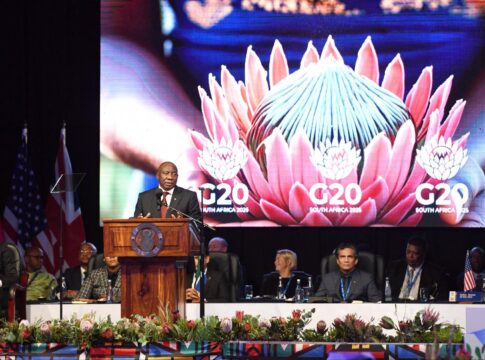Former Nigerian military president Ibrahim Badamasi Babangida (IBB) is making a renewed case for youth leadership, urging the country’s current rulers to hand over more responsibilities to the younger generation.
At 83, the retired general says Nigeria’s future depends on empowering its youth, who make up 70% of the country’s 216 million people.
“The emergence of a new youth majority is the most significant event of our lifetime,” Babangida wrote in the epilogue of his memoir, A Journey in Service. In a section titled Letter to the Next Generation, he calls on young Nigerians to see themselves as leaders, not just spectators.
READ MORE: NDLEA Cracks Down on Trans-Border Drug Cartel, Seizes 190,960 Tramadol Pills
Babangida, who took office at 44 in 1985, argues that youth-led leadership is no longer a dream but a necessity. “Our youthful population is an opportunity bomb that no sensible national leadership can ignore if it wants to succeed,” he warned.
‘Tomorrow Is Here’
Despite being out of office for over three decades, IBB insists he remains connected to the pulse of the nation. He acknowledges that Nigeria’s youth are increasingly driving political and economic conversations, defying historical divisions of religion and ethnicity. Instead, they are united by common struggles—unemployment, inadequate infrastructure, and poverty.
“They are restless because they believe we can be better, do better, and match the best of the rest of the world,” he said.
Babangida pointed to the growing presence of young Nigerians in governance, from state governors to cabinet ministers, as proof of an inevitable generational shift. “From my experience here in Minna, change has been the most exciting feature of our public sphere,” he observed.
A Call for National Youth Consensus
Beyond politics, IBB believes young Nigerians must build networks and alliances across ethnic and religious lines to strengthen the nation. “Nigeria does not need an elite consensus,” he said. “We need a national youth consensus.”
He urged the country’s leadership to view the rise of youth in politics as an opportunity, not a threat. “It would be a tragic mistake for any political leader to see the youth’s emergence as a hostile political development,” he warned.




